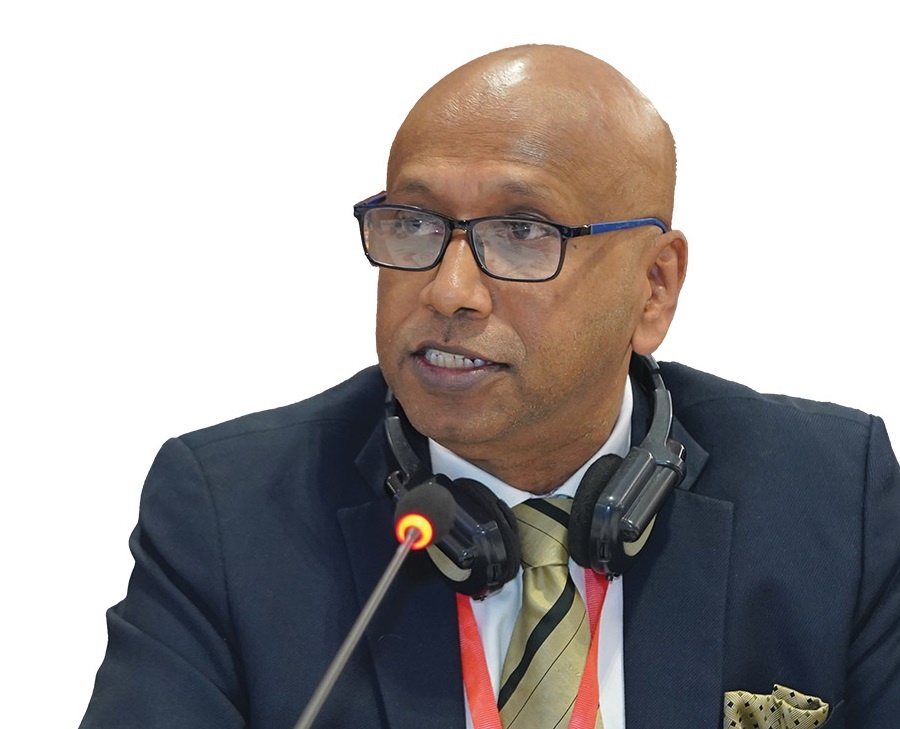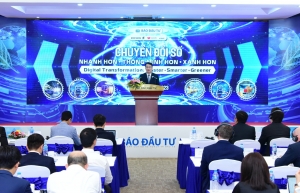Smarter urban planning for more resilient cities
 |
| Shanmuga Retnam, founder World Cities Summit (Singapore) |
Recognising the urgency, the ASEAN Smart Cities Network (ASCN) has adopted a six-focus approach with over 80 projects across its 32 member cities, each dedicated to advancing climate resilience and sustainability.
These ASCN projects offer a snapshot of the region’s priorities and have expanded significantly since the ASCN’s inception in 2018. Moving forward, it would be beneficial for more Vietnamese cities beyond Hanoi, Ho Chi Minh City, and Danang to join the ASCN, especially as Malaysia takes on the network’s chairmanship in 2025.
The growth of ASCN projects is evident both in the number and scope of activities. In 2023, the ASCN introduced an ASEAN Smart City Investment Toolkit to provide member cities with practical knowledge on funding and financing smart city initiatives. This toolkit aims to empower ASCN and other ASEAN cities with the tools they need to pursue sustainable development initiatives and secure investment for large-scale urban projects.
Rapid urbanisation presents both promising opportunities and pressing challenges for sustainable development. As cities grow, so do the demands on infrastructure, the risk of environmental degradation, and the deepening of social inequalities. Successfully managing urban expansion requires not only smart city planning, but also a clear focus on reducing emissions and mitigating the impacts of climate change.
Southeast Asia is among the regions most vulnerable to climate change. Coastal cities such as Danang and Singapore face the highest risks due to rising sea levels and increased flooding. Globally, the economic cost of climate change is estimated to reach $38 trillion annually by 2050, which could amount to 28 per cent of projected global GDP by then.
Danang has made strides in this direction by becoming Vietnam’s first city to develop a comprehensive resilience strategy. This strategy emerged from a partnership with the Rockefeller Foundation, which conducted a preliminary resilience assessment to identify areas where the city requires in-depth research, targeted action plans, and resources for future development.
The resulting resilience strategy serves as a roadmap, but its effectiveness hinges on community engagement. Implementing urban resilience involves partnerships across all levels of society, with residents actively collaborating to address vulnerabilities. The results of these efforts are visible: in 2023, Danang achieved the highest rate of online public service utilisation across Vietnam, reaching 95 per cent, compared to the national average of 55 per cent, as reported by the Ministry of Information and Communications.
Vietnamese cities need to be more than just liveable; they must also be sustainable, adaptable, and prepared to withstand crises, including health emergencies like the pandemic and other future environmental and economic disruptions. To support this, Singapore has been at the forefront of climate action, implementing a “triple transition” plan to achieve a low-carbon future.
Desmond Lee, Singapore’s Minister for National Development, urged that we must “be unafraid to take bold steps to safeguard the best future for generations to come”. His words reflect a forward-thinking approach that not only considers current needs, but also prioritises long-term planning for future generations.
Achieving these ambitious goals requires accelerated knowledge-sharing across ASEAN, fostering collective solutions to shared urban challenges, and building climate resilience. In 2019, I introduced the concept of “Economic City Branding” to encourage city leaders to utilise their geographical strengths to inform urban strategies, helping to strengthen city identities.
Notable initiatives are emerging that embody this spirit. Singapore’s NUS Cities provides interdisciplinary research and advisory support to help cities address complex urban issues through a complex adaptive systems lens. By applying systems and complexity science, NUS Cities offers new methodologies to understand how cities function and adapt in response to ever-evolving challenges.
Similarly, Mumbai First, a private-sector-driven organisation, has committed to climate-proofing coastal cities. With support from the Maharashtra government and India’s Prime Minister’s Office, Mumbai First will host the Redefining Sustainable Cities conference in February next year. This event aims to strengthen collaboration between India and Vietnam in addressing the unique challenges faced by coastal cities.
Ultimately, resilient cities must not only be outward-looking but inwardly reflective, consistently seeking ways to improve. Building resilience demands an openness to challenge existing assumptions, a willingness to innovate, and a boldness to envision new possibilities. The journey towards sustainability and resilience requires an active commitment from all city stakeholders, and it is this collective dedication that will define the future of ASEAN’s urban landscapes.
 | Digital transformation: Faster - Smarter - Greener VIR's forum on Digital Transformation: Faster - Smarter - Greener on March 21 opened up new and practical information flows about dual transformation trends – digital and green – in the fields of manufacturing, finance and banking, and e-commerce and logistics. |
 | Powering smarter and greener industries Along with the deployment of 5G technology as a digitisation foundation, Vietnam has been setting up its infrastructure and human resources for a faster and greener digital transformation. |
 | Greener, faster, smarter digital plans Various experts have explained how Vietnam can be smarter, greener, and more efficient in its digital overhaul, with an eye towards sustainability. |
What the stars mean:
★ Poor ★ ★ Promising ★★★ Good ★★★★ Very good ★★★★★ Exceptional
Latest News
More News
- IP alterations shape asset strategies for local investors (January 22, 2026 | 10:00)
- 14th National Party Congress: Vietnam - positive factor for peace, sustainable development (January 22, 2026 | 09:46)
- Japanese legislator confident in CPV's role in advancing Vietnam’s growth (January 22, 2026 | 09:30)
- 14th National Party Congress: France-based scholar singles out institutional reform as key breakthrough (January 21, 2026 | 09:59)
- 14th National Party Congress: Promoting OV's role in driving sustainable development (January 20, 2026 | 09:31)
- 14th National Party Congress affirms Party’s leadership role, Vietnam’s right to self-determined development (January 20, 2026 | 09:27)
- Direction ahead for low-carbon development finance in Vietnam (January 14, 2026 | 09:58)
- Vietnam opens arms wide to talent with high-tech nous (December 23, 2025 | 09:00)
- Why global standards matter in digital world (December 18, 2025 | 15:42)
- Opportunities reshaped by disciplined capital aspects (December 08, 2025 | 10:05)

 Tag:
Tag:














 Mobile Version
Mobile Version